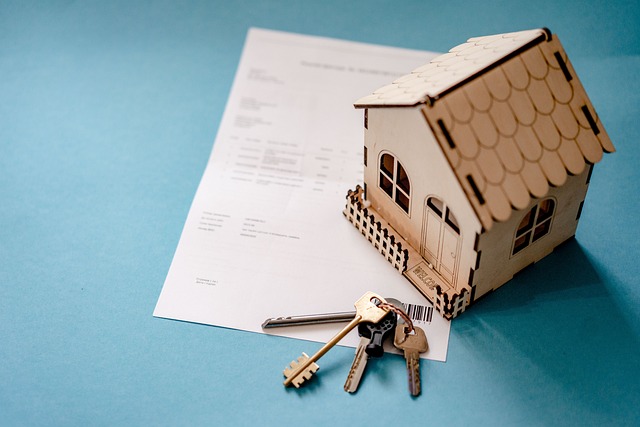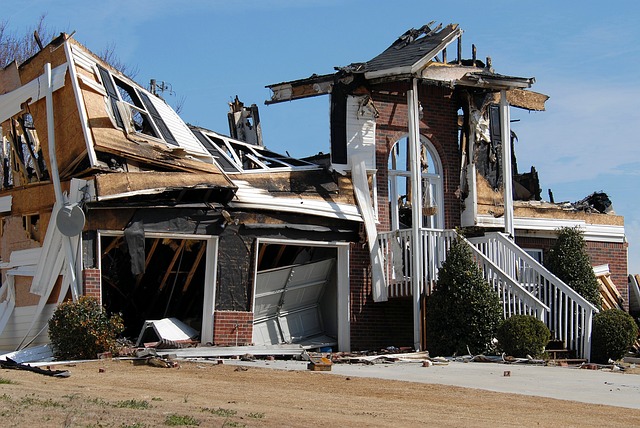Securing property insurance is a vital step for startups, protecting their physical assets (buildings, equipment, inventory) from damage or loss due to fires, theft, vandalism, natural disasters, and more. Startups face unique risks like equipment failures and rapid growth, necessitating tailored policies. Comprehensive property insurance mitigates financial losses, enabling business continuity and sustainable development. Key aspects include assessing asset values, comparing insurer policies, navigating claims, and regularly reviewing policy coverage as the startup evolves. Case studies show how robust property insurance has shielded startups from crises, allowing them to focus on growth and innovation.
“Uncertainty is a startup’s constant companion, but one risk you can’t afford to overlook is property damage. This comprehensive guide dives into the essentials of Property Insurance tailored for startups, demystifying its importance and complexities. From understanding basic coverage to navigating claims, we’ll explore why this safety net is crucial for safeguarding your physical assets. By uncovering common pitfalls and highlighting success stories, this article equips startups with the knowledge to make informed decisions in securing their future.”
Understanding Property Insurance Basics for Startups

For startups, understanding property insurance basics is a crucial step in securing their assets and future. Property insurance protects against physical damage or loss to business property, including buildings, equipment, inventory, and other valuables. It covers unexpected events like fires, theft, vandalism, and natural disasters, providing financial reimbursement for repair or replacement costs.
Startups often face unique risks, from equipment failures to rapid growth leading to space constraints. A comprehensive property insurance policy tailors coverage to these specific needs, offering peace of mind and financial protection against unforeseen circumstances that could cripple a young business.
Why Do Startups Need Property Insurance?

Startups, by their very nature, are exploratory and dynamic ventures. They often operate in dynamic environments, requiring flexible and adaptable solutions to manage risks. Property insurance plays a pivotal role in this risk management strategy. It offers startups much-needed financial protection against unforeseen events that could disrupt or even cripple their operations.
These events range from natural disasters like fires, floods, and storms to manmade incidents such as theft, vandalism, or civil unrest. Without proper property insurance, startups may find themselves vulnerable to significant financial losses, potentially hampering their growth trajectory or even leading to closure. Hence, integrating property insurance into their risk management arsenal is a prudent step for startups to safeguard their assets, maintain continuity, and foster sustainable development.
Key Risks and Perils to Consider for Startup Properties

Startups, with their innovative spirit and growth potential, come with a unique set of risks that extend beyond just financial investments. When it comes to property insurance, understanding the key risks and perils specific to startup properties is essential for safeguarding your business assets. These can range from natural disasters like fire, flood, or extreme weather events, which are covered by standard policies, to more niche hazards. For instance, startups in tech hubs might face increased risks of cyberattacks, requiring specialized coverage for data breaches and system failures.
Additionally, construction sites and warehouses, common among startup businesses, pose unique challenges. Damage from heavy machinery, accidents during renovation, or the theft of inventory are potential risks that property insurance should address. Furthermore, as startups expand and move into new locations, ensuring adequate insurance for each property becomes crucial to avoid financial strain in case of unforeseen events.
Types of Property Insurance Coverage for Startups

Startups, with their innovative spirit and growth potential, require comprehensive risk management strategies, and property insurance is a cornerstone of this protection. This type of insurance safeguards against physical losses or damages to a business’s assets, which are often its most valuable resources. Coverage options can vary, but typically include building or structure insurance, which protects the startup’s physical space, including any on-site equipment or fixtures.
For businesses with a retail or e-commerce presence, inventory insurance is essential. This coverage ensures that startups can replace lost or damaged stock, a crucial aspect for maintaining cash flow and customer satisfaction. Additionally, business personal property insurance provides protection for movable assets like furniture, computers, and other equipment, ensuring that startups can continue operations without significant setbacks in the event of a covered loss.
How to Choose the Right Property Insurance Policy

Selecting the suitable property insurance policy is a crucial step for startups, as it offers protection against potential risks and financial losses related to their physical assets. The process involves understanding the specific needs of your startup and identifying the coverage options that align with those requirements. Start by evaluating the type of property you possess, whether it’s a brick-and-mortar office space or valuable equipment within a shared workspace. Consider the replacement cost of these assets, as well as any legal liabilities associated with your business activities.
Next, compare different insurance providers and their offerings. Review policy terms, exclusions, and limitations to ensure they adequately address your concerns. Some policies may cover basic perils like fire or theft, while others extend protection for more specialized risks. Tailor your choice by considering the nature of your startup’s operations and any unique challenges it faces in its industry. Remember, the goal is to find a balance between comprehensive coverage and affordable premiums that provide peace of mind for your growing business.
Claim Process: What Startups Should Know

When a startup faces property damage or loss, understanding the claims process is crucial. The first step involves notifying their insurance provider as soon as possible, typically through a phone call or online portal. It’s essential to have all relevant details at hand, including the date and extent of the damage, along with any initial assessments or estimates for repairs.
The insurer will then assign an adjustor to inspect the property and assess the damages. Startups should cooperate fully during this process, providing clear and accurate information. Once the claim is approved, the insurance company will provide a payment or settlement based on the policy terms. Being proactive and keeping open lines of communication with the insurer can ensure a smoother claims experience and help startups recover faster from unforeseen property losses.
Common Mistakes Startups Make with Property Insurance

Many startups, in their enthusiasm to grow and protect their assets, often fall into pitfalls when it comes to property insurance. A common mistake is underestimating the value of their physical space and belongings. Startups may think their insurance policy will cover everything as they grow, but often, initial policies are tailored for smaller operations and don’t scale with rapid expansion. This can lead to significant gaps in coverage during a time when resources are stretched.
Another blunder is neglecting to update policies regularly as the business evolves. As startups attract investors, expand into new locations, or acquire new equipment, their insurance needs change dramatically. Failing to adjust coverage accordingly leaves them vulnerable. Property insurance is not a one-size-fits-all solution, and startups must stay agile, reviewing and revising their policies to align with their evolving risks and responsibilities.
Case Studies: Property Insurance Success Stories

Many startups have found success in navigating the challenges of business with the help of robust property insurance policies. Case studies illustrate how adequate coverage has shielded entrepreneurs from financial ruin due to unforeseen events, such as natural disasters or property damage. For instance, a tech startup based in a coastal area experienced significant downtime and repair costs after a powerful storm struck, but their comprehensive property insurance policy covered these expenses, enabling them to quickly resume operations.
Another example involves a retail startup that suffered a break-in and subsequent theft of inventory. Thanks to their property insurance, they were compensated for the lost goods, providing the necessary capital to restock and continue serving their customers without undue delay. These success stories underscore the importance of property insurance in safeguarding startups’ assets, enabling them to focus on growth and innovation rather than unexpected crises.
Future Trends in Property Insurance for Startups

The future of property insurance for startups is shaping up to be more dynamic and tech-driven than ever before. As the startup ecosystem continues to evolve, so too will the needs and demands placed on property insurance providers. Emerging trends indicate a growing emphasis on personalized, data-driven policies that cater to the unique risks faced by these innovative businesses. Artificial intelligence and machine learning will play a pivotal role in this shift, enabling insurers to analyze vast datasets and assess risks more accurately and efficiently.
Additionally, the integration of smart technology and Internet of Things (IoT) devices is expected to revolutionize property insurance. Startups adopting smart buildings and industrial IoT solutions can expect more comprehensive coverage tailored to their specific assets and operations. This includes real-time monitoring and predictive analytics, allowing insurers to offer proactive risk management strategies and more precise pricing models. Such advancements promise to make property insurance more accessible, flexible, and aligned with the rapid pace of innovation within the startup community.
